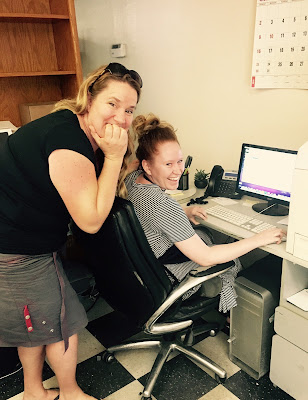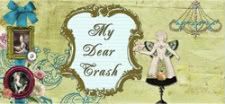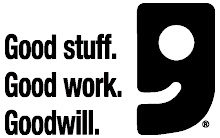My parents have moved to London for six months. You can read about that here. I should be fine, right. I have a loving husband, six amazing children, brothers and sisters, amazing in-laws and friends, but lately, I’ve noticed something is missing. It’s quality time with my mom.
There’s a tiny hole in my heart. It reminds me my mom is not here.
If I acknowledge it, I can feel it grow weepy, even pitiful, but I’m trying to move on, stay busy, share love, see the big picture so I can move past this tiny hole before it grows too big.
My mom and I text and we’ve talked a few times on the phone. When she calls, it’s like a dam releases in my heart. I tell her my goals, my dreams, my experiences and she lovingly listens, encourages, oooohs and aaaahs at my ideas, reminds me I have special things to do with my life and that I am her “little humanitarian,” a term I hold dear to my heart. The first time my mom called me a humanitarian, I felt like I’d been given a noble calling.
My mom has spent her life searching and manifesting for ways to feel God.
My mom with my daughter Eden in 2002.
She’s a mother, one of the most beautiful paths to feeling God’s presence I can think of. She’s a wife, nurturing a commitment of love that will last an eternity. She’s a writer, a deep thinker, one who asks questions and finds ways to answer them. She’s also a doer. Even against the odds, she follows her heart. Here is one such example:
In 1997, my mom had an impression she should go to Washington D.C. during the partial birth abortion hearings, following which Congress would vote regarding the legality of this horrendous “medical procedure.”
Partial birth abortion was a new term, although not a new procedure. The public was not aware that these types of abortions were taking place, let alone legal. Many in Congress wanted to ban this “frankensteinian” procedure.
Partial birth abortion takes place when a woman is in her third trimester and the baby is viable. In other words, the baby could be born premature and survive, but is aborted before taking its first breath. The mother is fully dilated, the baby’s head crowns when the abortion doctor inserts a sharp scissor-like instrument through the soft spot into the infant’s brain, killing the baby before it ever has a chance to let out its first cry. As long as the baby has a foot still inside the mother, “it is not born” and the procedure is legal. If the baby is outside the mother, the procedure is murder.
In 1997, my parents were struggling financially, but with careful budgeting, my mom found a way to pay for the flight. She knew this wasn’t a time to sit and watch history take place around her. She needed to be bold and she would do it. She wanted to share with law makers on Capitol Hill her books on prebirth studies, providing solid evidence that unborn children are alive. She contacted her Congressman, with whom she was acquainted, and told him she wanted to share her research, with him and others. He was familiar with her books, particularly Coming From The Light (Simon & Schuster) and agreed that it was a good idea.

She scheduled her trip and once in D.C., stood in line until she was finally allowed entry to listen to the debates by United States Congressmen and Senators. Standing in line, there were people around her screaming and yelling, “Don’t stop partial birth abortion. It is a women’s right to choose.” She remembered thinking, “It feels like a hole has been punched in the wall of hell and these people came out to fight for the right to kill innocent children.”
Once inside the building, she saw one of the most valiant of all warriors for the unborn, Henry Hyde, a U.S Senator from Illinois. He walked past her, not knowing who she was. She handed him a card she had prepared before leaving home with a quote she had written down that he had previously said, to perhaps use in her talk:
When the time comes as it surely will, when we face that terrible moment, the final judgment, I’ve often thought as Cardinal Fulton Sheen wrote, that it is a terrible moment of loneliness. You have no advocates there, you are there alone standing before God, and a terror will rip your soul like nothing you can imagine. [By contrast], I really think that those in the pro-life movement will not be alone. I think there will be a chorus of voices that have never been heard in this world but are heard very beautifully and very loudly in the next world and I think they will plead for everyone who has been in the [pro-life] movement.
They [the aborted] will say to God, “Spare them, because they loved us.” And God will look at us and ask not, “Did you succeed?” but “Did you try?”
Henry Hyde, a mighty and valiant voice, spoke eloquently and emotionally about why partial-birth abortion should be outlawed. People in the audience were moved to tears. Voting wouldn’t take place for days, so my mom walked the halls of the congressional building, hoping to speak with anyone she could influence. She stopped Rick Santorum and handed him her book. He thanked her for what she was doing and explained, “My wife wrote a book about our baby that died and what that baby taught us about the sanctity of life.”
My
mom handed out at least fifty books that day, mostly to interns who worked for
congressmen and senators. Her congressman arranged for her to speak
at a caucus meeting in which researchers like her could share their latest
findings. Reality set in, but she found courage in the right to life messages of
others who had spoken earlier. Several congressmen sent their aides and she
spoke to a group of people in a room in the Rayburn Building on Capitol Hill.
Who does this? Can you imagine the courage, the gumption, the determination to not only travel across the country, but into the heart of our nation’s capital, not knowing where you’re journey will take you, only hoping something good will come from it. When my mom and I wrote her biography The Memory Catcher, I started to understand the enormous capacity of her character.
In 1997, banning partial-birth abortion passed by congressional vote, but Bill Clinton vetoed it. Partial-birth abortion was still legal. It was a sad reality. I remember that day, asking my mom what she would do now that she’d lost. Would she still be the researcher of the unborn? Would she still write about prebirth studies? Was there any hope for those children facing abortion? I’ll never forget what she said. With optimism and personal conviction, she said, “Oh, Laura, all is well. We may not be able to change the laws, but we can change hearts.”
My mom set the way for not only many children who’s lives have been saved, but for me.
This is my mom: activist, researcher, believer and most importantly, she’s one who makes it happen. You think of all the fanfare people expect. The applause, the standing ovation, worldly success – my mom only wanted to help a baby. There's not much to criticize about that. You see, she’s had a miscarriage before she ever started writing about the unborn. Losing this baby and later having a dream about that baby made her ask the question, “Where are our children before they are born?” With this experience, her life’s mission was born.
Here she is 30 years later speaking at the United Nations.
I don’t think I’d be on this path if my mom had not moved to London. If she still lived down the street, I’d be skipping my way over there for lively conversation and the party atmosphere her and I always create when we are together. My mom is fun and even when we are serious, there is a party going on. But with her gone, our relationship has changed. It has matured. Memories mean so much. Subconsciously, I’m searching for her in my everyday purpose and life calling. Her example is something I want to emulate, even if just for a moment to feel her near. Her accomplishments have become magnified. Because I helped her write her memoir, I am a scholar of her work. I see this influence in my life and want it to grow. What talents do I have that can help? What talents can I develop to carry her tradition on? Saving the unborn is part of my heritage and I beg your pardon, as I take a giant step over political correctness and find my way.
Partial birth abortion was banned in 2003 by President Bush, but the controversy lives on, because in late-term abortions, this barbaric procedure and similar tactics still take place today.
In my book Starving Girl - My 30-day Experience with the Miracle of Intermittent Fasting and Prayer, I reflect on being raised by an activist mom, facing the reality of abortion after I was sexually abused, and learning how food addiction and negative body image was a cover up for shame and hurt.
My mom's book The Castaways is celebrating 15 years. You see, it didn't take long for my mom to ask the question, "What happens to the soul of an aborted child?" Through compelling evidence and research, she attempts to answer that question.












































